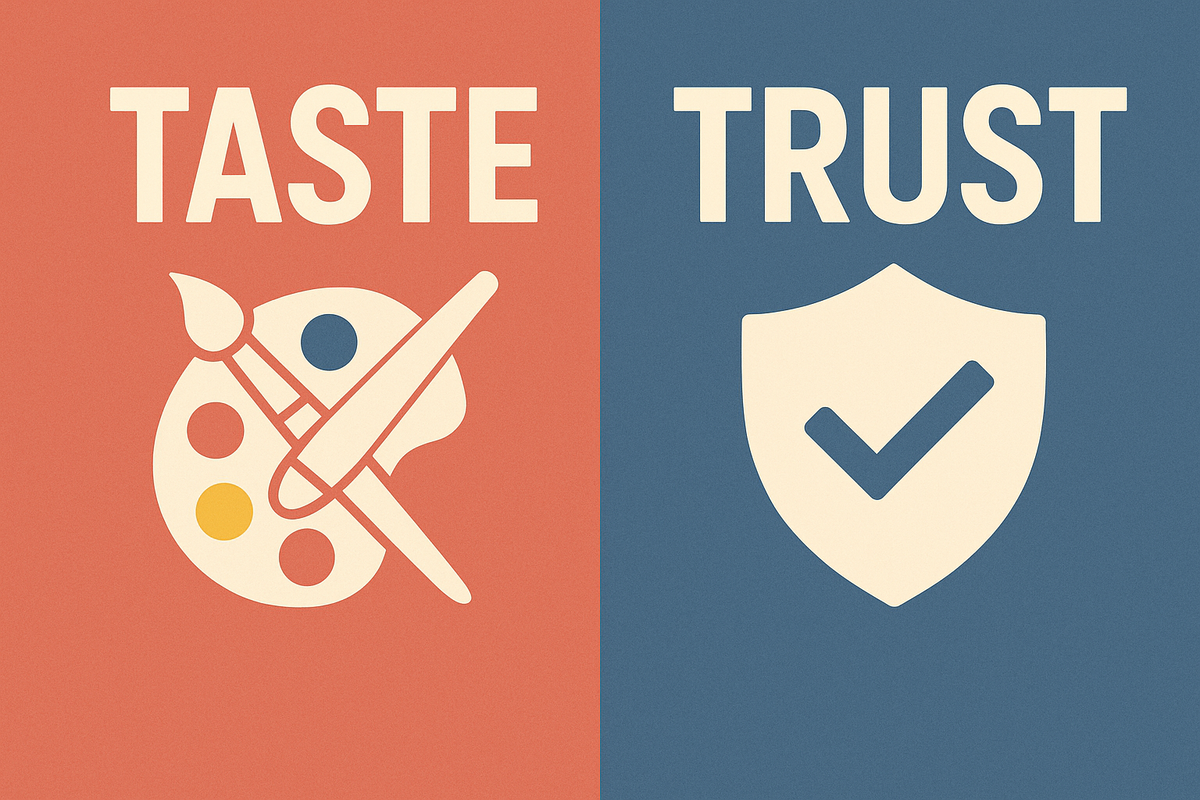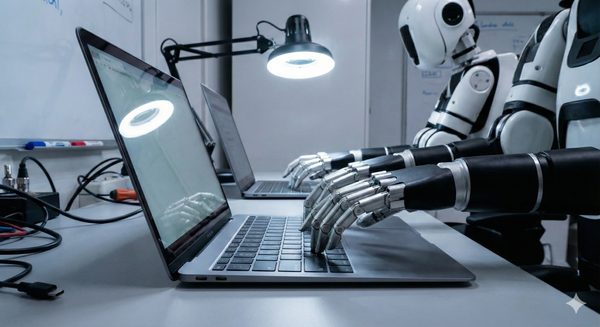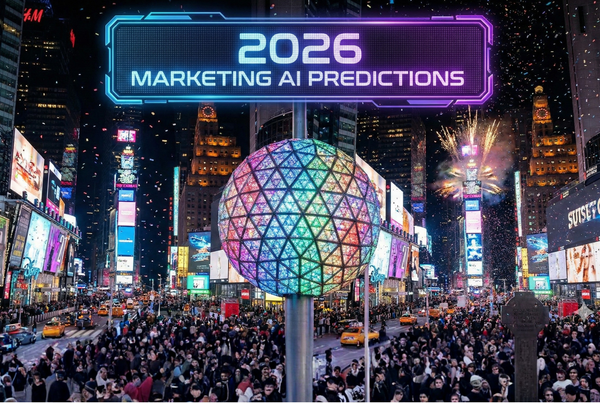Trust and Taste: The Two Human Qualities AI Can’t Replace
In a world of infinite AI output, two human qualities are essential: trust and taste. Discover why your judgment is the ultimate differentiator.

We’re well past the point of asking if AI will change our jobs. It already has. But a recent New York Times Magazine piece titled “A.I. Might Take Your Job. Here Are 22 New Ones It Could Give You” reminds us that even as AI replaces tasks, it’s creating a new economy, one built on two timeless human traits: trust and taste.
These aren’t buzzwords. They’re the pillars of meaningful, differentiated work in a world where much of the doing is being delegated to machines.
Why Trust Still Requires a Human
Writer Robert Capps, formerly of Wired, opens the piece with a confession: he asked ChatGPT to write the article. The result? Polished, plausible, and publishable, on the surface. But dig deeper, and the content was riddled with hallucinated facts, invented experts, and artificial authority. He didn’t use the draft, not just because it would have been a fireable offense, but because it betrayed a basic truth: we don’t just deliver work; we stand behind it.
In a professional world increasingly run by AI, the real value of human contribution is accountability. From A.I. auditors and translators to escalation officers and legal guarantors, these new roles aren’t about writing prompts or fixing typos—they’re about answering the most important question in any high-stakes environment: Can I trust this?
As organizations race to integrate AI into contracts, communications, healthcare, and customer service, we’re seeing an emerging need for trust guardians. People who check the math. People who understand the bias. People who say, “This isn’t good enough.” And critically, people who accept responsibility when things go wrong.
At AIForwardMarketer, I’ve argued that job titles in an AI world must evolve to reflect ownership, not just output. Trust isn’t just a checkbox—it’s a job description.
Taste: The New Differentiator in the Age of Infinite Content
Taste, as Capps frames it, is not a luxury. It’s the most competitive human skill in a generative world. When AI can churn out a thousand ad variations or marketing concepts in seconds, the real job isn’t creating content, it’s curating it. It's choosing what to say, how to say it, and when to say nothing at all.
Rick Rubin, the iconic music producer, said it best in his 60 Minutes interview:
“I have no technical ability. And I know nothing about music." When asked what he's being paid for, he replies "the confidence I have in my taste, and my ability to express what I feel.”
Taste isn’t teachable in a prompt. It’s what tells you that a brand voice isn’t quite there, or that a sales deck feels off, even if the data checks out. And it’s precisely what will separate AI-powered marketers from AI-overwhelmed ones.
In my earlier post about “bleeding” when writing with AI, I explored this idea in personal terms: when we rely too much on AI, we risk bypassing the messy, human process of thinking, struggling, and refining. That’s where the taste is developed. That’s how strategy is born. Not from a model, but from the friction of judgment.
New job titles reflect a shift in creative control. You don’t need to know how to draw to make something beautiful with AI. But you do need to know when it’s good. Or not good enough. And when it's just right.
Taste is the new leverage. It's how you build brand, guide product development, shape hiring culture—even decide which AI models to trust.
Three Things to Remember
What this article reinforces is something we see every day with marketers learning to use AI:
- AI is the intern. You’re still the editor.
- Speed is free. Taste is earned.
- Output is abundant. Trust is rare.
If we want to thrive in this new economy, we need to think harder about what makes us worth trusting, what makes our perspective valuable, and what gives our work meaning.





